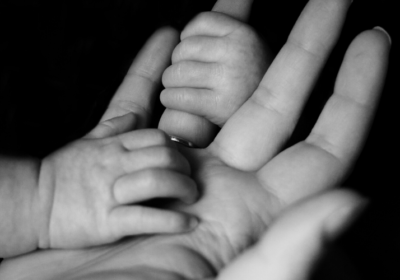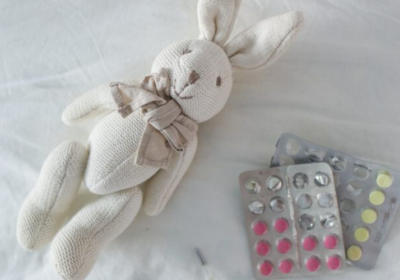“You either walk inside your story and own it, or you stand outside your story and hustle for your worthiness.” – Brene Brown
“Honey, can you make me a cup of coffee?” my husband asked.
I was overcome by a wave of anger, and my reaction was automatic. “I am not your mother!”, I responded. “Get your own cup of coffee.”
I was not responding to the situation. I was reacting to a wounded part of my story. My husband is the type of man who will spend 15 minutes fixing himself the perfect sandwich and then give it to the first person that walks in the room and looks hungry. He is always fixing us treats.
I was only 19 when we got married and still making sense of my own story. I can remember as a child watching my dad rattle his ice cubes, and my Mom would hop up and get him a refill of his sweet tea. I remember when I was about 9,and he turned to me and rattled his ice cubes. He did it again trying to get my attention. I wondered what on earth he was doing. Surely, he did not expect me to hop up and get him a drink, but that is exactly what he expected. A wave of anger came over me, and I said, “Don’t you ever, ever rattle your ice cubes at me!”
In making sense of my own story, I understand that the fact I had a home where I was safe enough to say that and not get smacked around was an important part of how effective I feel as a person. He never rattled his ice cubes at me again. I had been effective and could change my story, but I had to fight for it. I understand now that I don’t have to fight to be effective or to be heard.
Adults often spend much of their adulthood trying to make sense of their story. “Why am I afraid of commitment? Why do I always end up in these relationships? Why don’t I trust anyone? Why am I so controlling?” When a reaction is stronger than the situation warrants, then we are reacting to some wounded part of our story. Our children are the same way. If a part of their story says, “I am not wanted”, then they will react strongly to seemingly small redirections as though it were heavy criticism. Can you imagine what a gift it would be to help children create meaning in their story from the time they are old enough to understand their first fairy tale?
I worked with one little boy who worked double time at keeping his Mommy very busy with him. In fact, whenever she would start getting focused on one of his siblings, his needs intensified. All of a sudden, he needed help unbuckling his pants to go potty, was desperately hungry, or needed to tell her about his day. He would do this with such an urgency that it made his mom feel manipulated and controlled. She tried to give him one-on-one time, but this seemed to only intensify his need for her as soon as they rejoined the family. She felt that he was insatiable.
I asked the little guy, “Buddy, I have noticed you really feel like you need to keep your Mommy very busy with you. I wonder why you are scared when she stops being busy with you.” He responded, “When she isn’t busy with me, I am not a real boy anymore. It is like I am invisible.” Karyn Purvis, the author of The Connected Child said, “The message of neglect is that I don’t exist.” This child was reacting to the wounded part of his story. He didn’t even know his story. Once we started making sense of these wounds, his fears diminished.
Often parents spend a lot of time shielding their children from their children’s own story. Interestingly, later in life, people seek out counseling to make sense of that very story they were shielded from. Dan Siegal said, “Making sense of your own story is the best thing that you can do for your children.” I think the reason parents want to shield their children is because they are trying to protect them from the “hard” or “shaming” pieces of their story. However, shame lets down very deep roots in dark places. When these pieces are brought to light, then they can be made sense of.
Adoption is complicated. There are many complex levels of an adoptee’s story. It gets even more complicated if neglect, substance abuse, and/or physical or sexual abuse are a part of a child’s story. Parents desperately want to shield their kids from these hard pieces of their story. Some parents avoid labels and refuse the idea that adoption issues exist, instead thinking it is just a part of the child’s inherent personality. Let me be clear. Adoption is trauma. Trauma can change the way our brains develop. Trauma has the ability to cause certain genes to express themselves.
I work with children in helping them understand their story. If they have special needs as a result of being neglected or abused, we talk about that. If they have trouble trusting their caretakers, we track this back to the pieces of their story where they were not able to trust their caretakers. I do this even when children can’t remember. There are two types of memory, implicit and explicit. Implicit memory is the memory held that you don’t actually have words to describe. I work with many children adopted in infancy who don’t remember being hungry, and yet they struggle, feeling like there is never enough food. Did you know that hunger can be experienced in utero? Children stress about food, hoard food, and obsess about food. They don’t know why food has such a strong hold on them.
Explicit memory is a memory you have words for such as, “I always get nervous driving around this corner because 2 years ago I had a wreck right here. “
I have worked with many children that have implicit memories about the time of the year that they were relinquished. These children struggle the most during a certain month of the year. Some people refer to these as “ traumaversaries”, also known as “anniversaries of trauma”. I have children that I see the same month every year, and then I don’t see them for the rest of the year. Most of the time, they come to me without understanding that struggling during this month is part of their story.
It is important to note that helping make sense of a child’s story is not the same as telling the child’s story to everyone you meet. It is sad that even though they are the main character in their story, they often know less about their own story than peripheral figures like acquaintances. Discretion must be used when sharing pieces of the child’s story. Even when our kids are older, we need to ask permission before sharing their stories. It is theirs to share. There is a proverb in the Bible that says,
“Do not throw your pearls to pigs. If you do, they may trample them under their feet, and turn and tear you to pieces.” (Proverbs 7:6b)
Our stories are our pearls. If given to the wrong person or at the wrong time, they may be trampled under people’s feet. If we share our story too many times or too soon after meeting someone, we end up feeling open and exposed. Most of the time when people come to me, it is because of “my story”. They don’t come because of my education or my professional experience. They come because somewhere along the way, they heard my wounded story, and it gave them hope.



